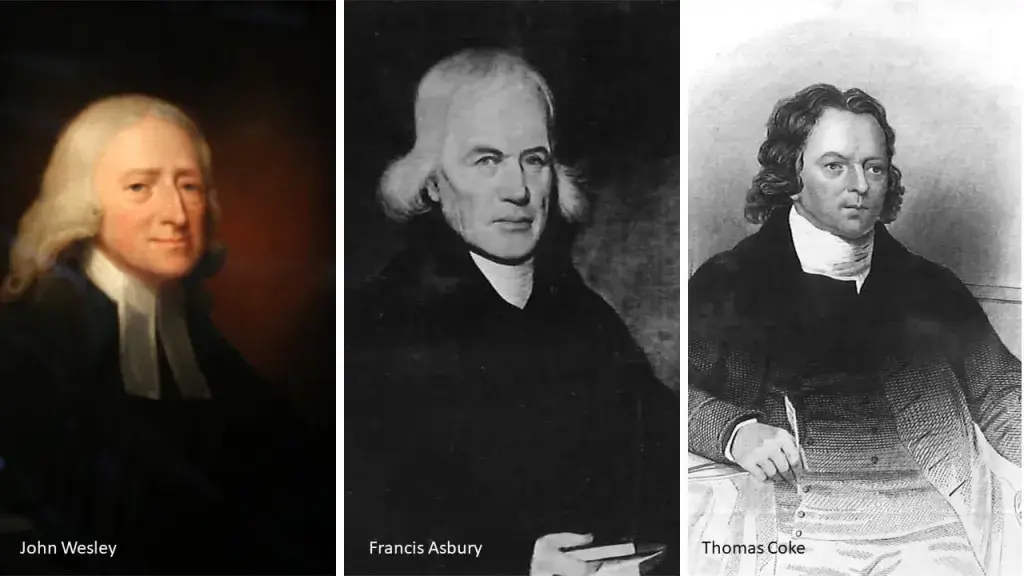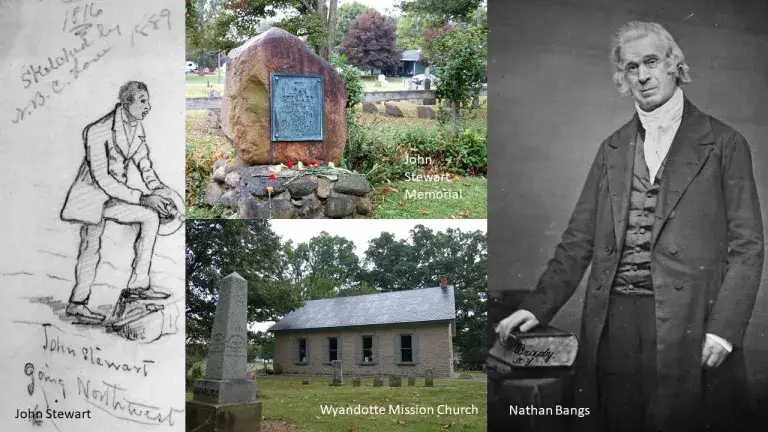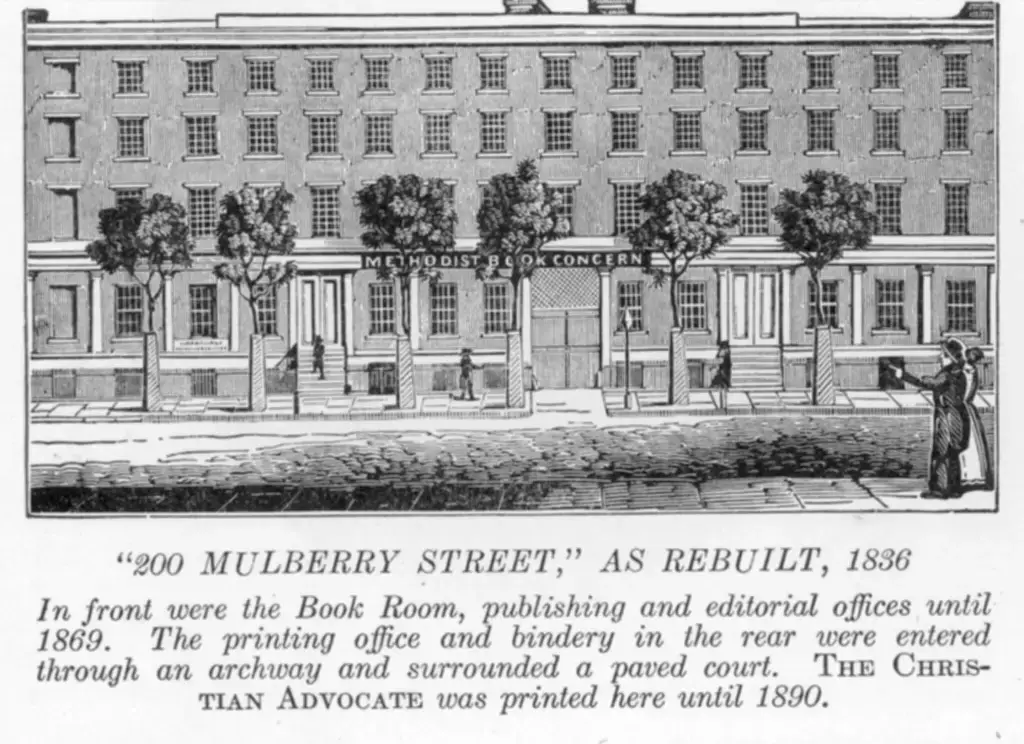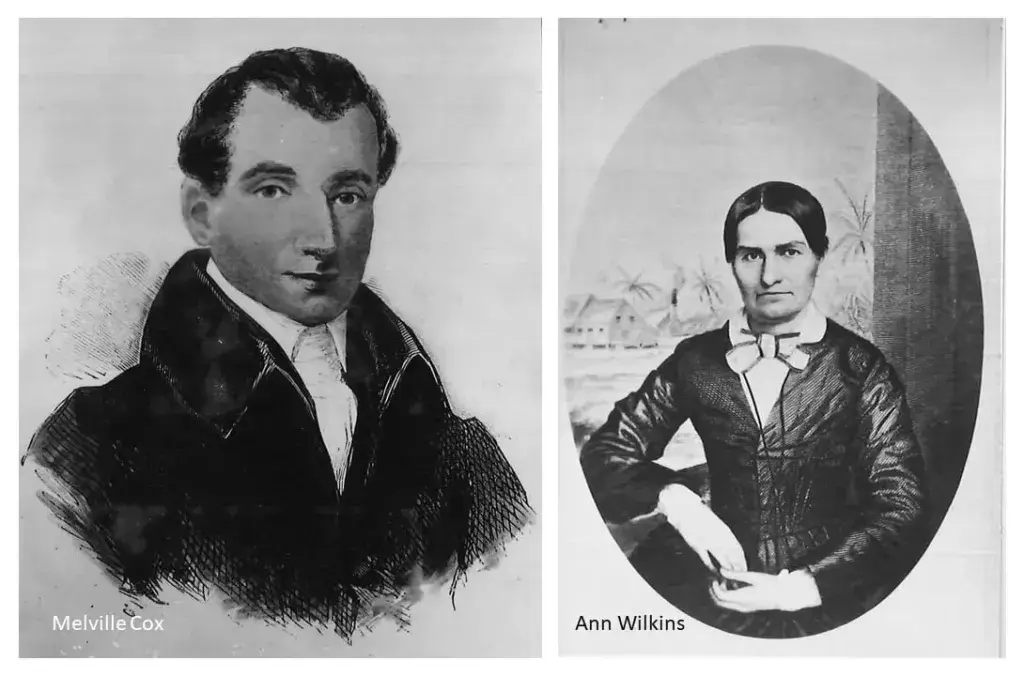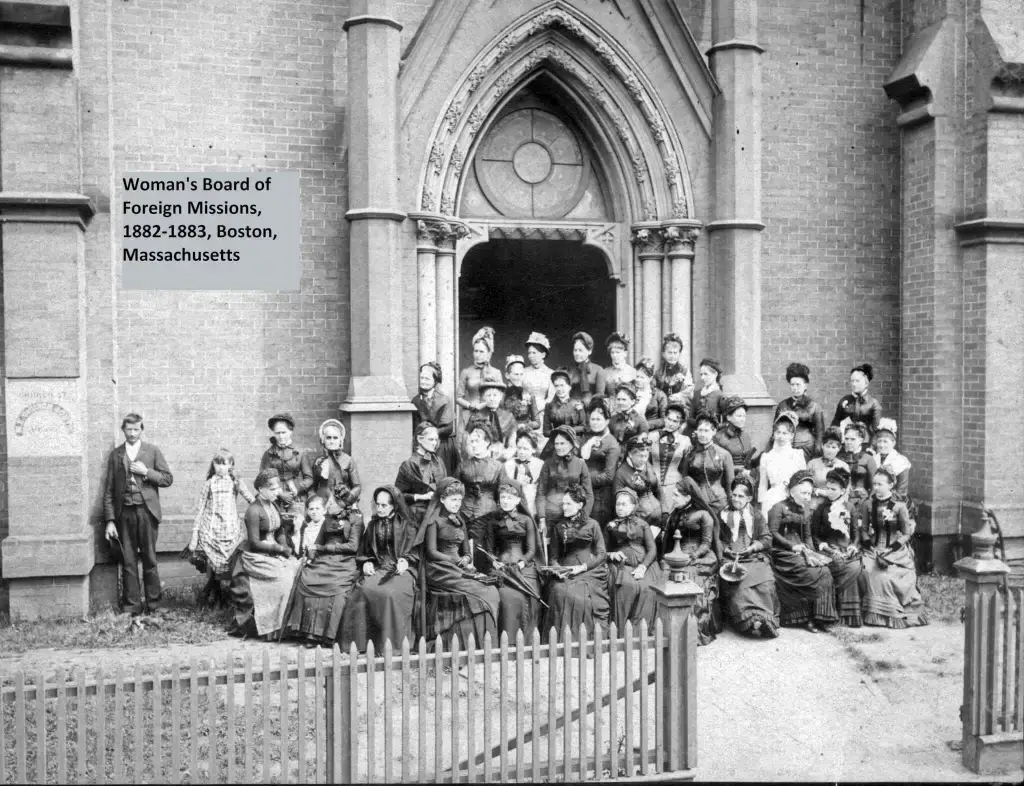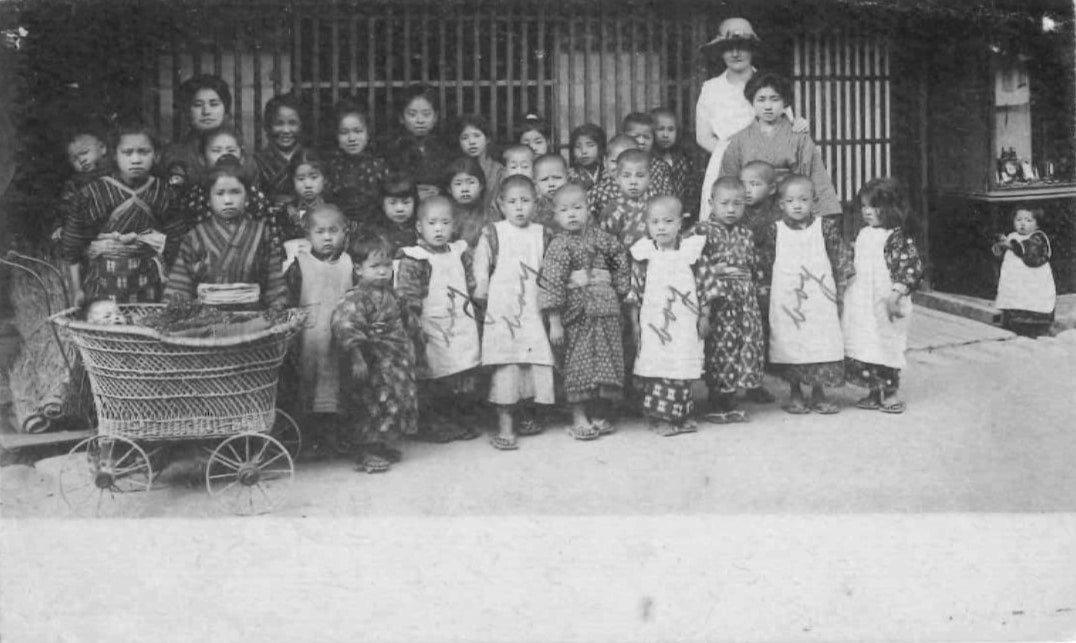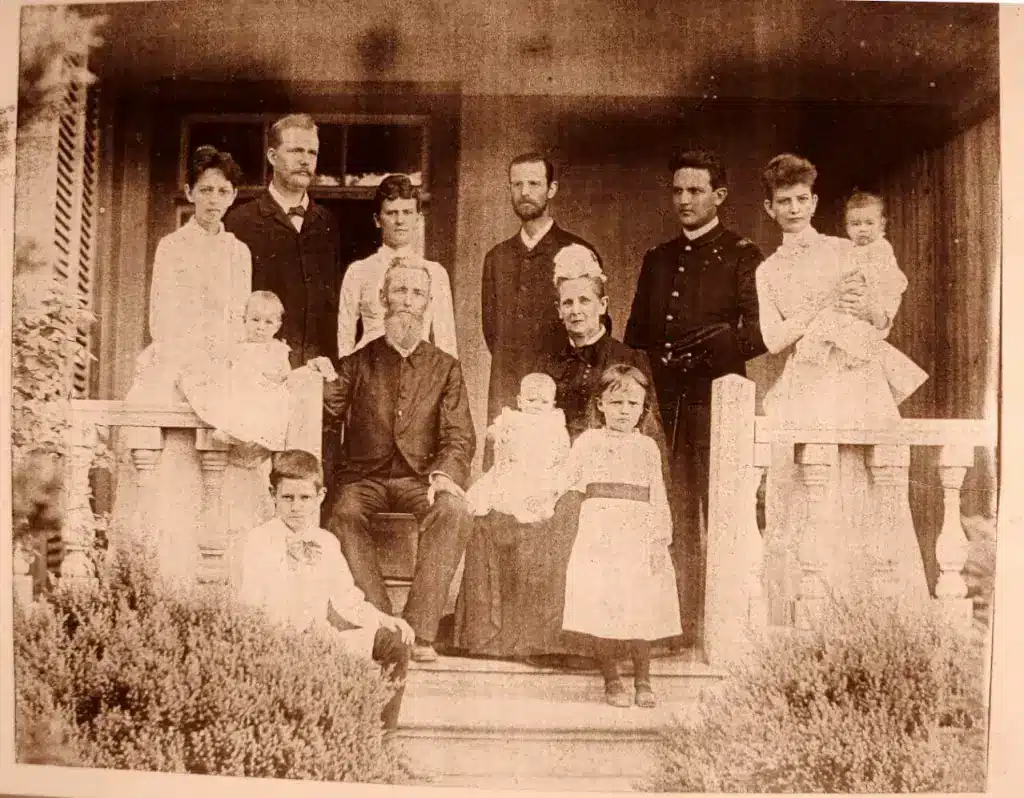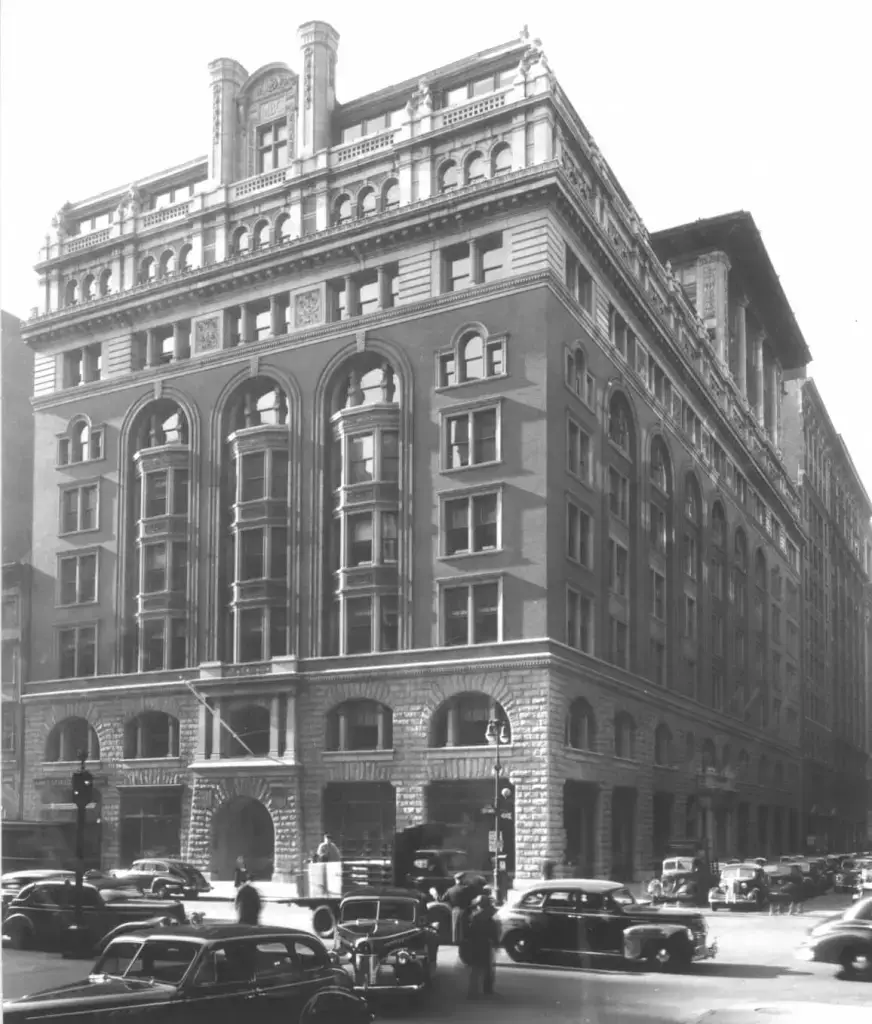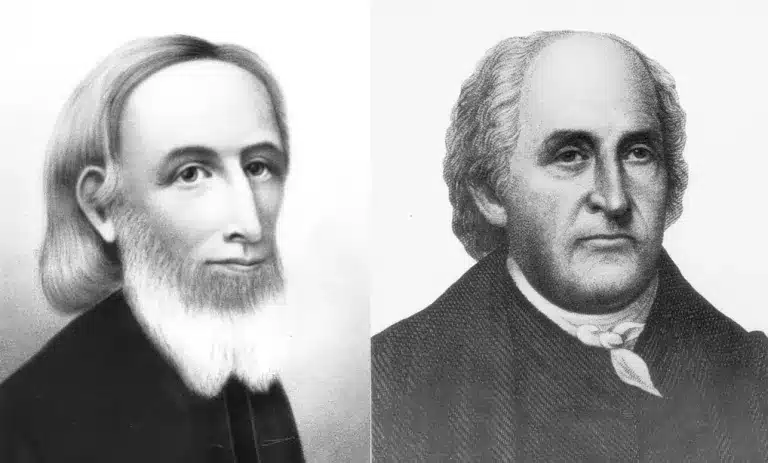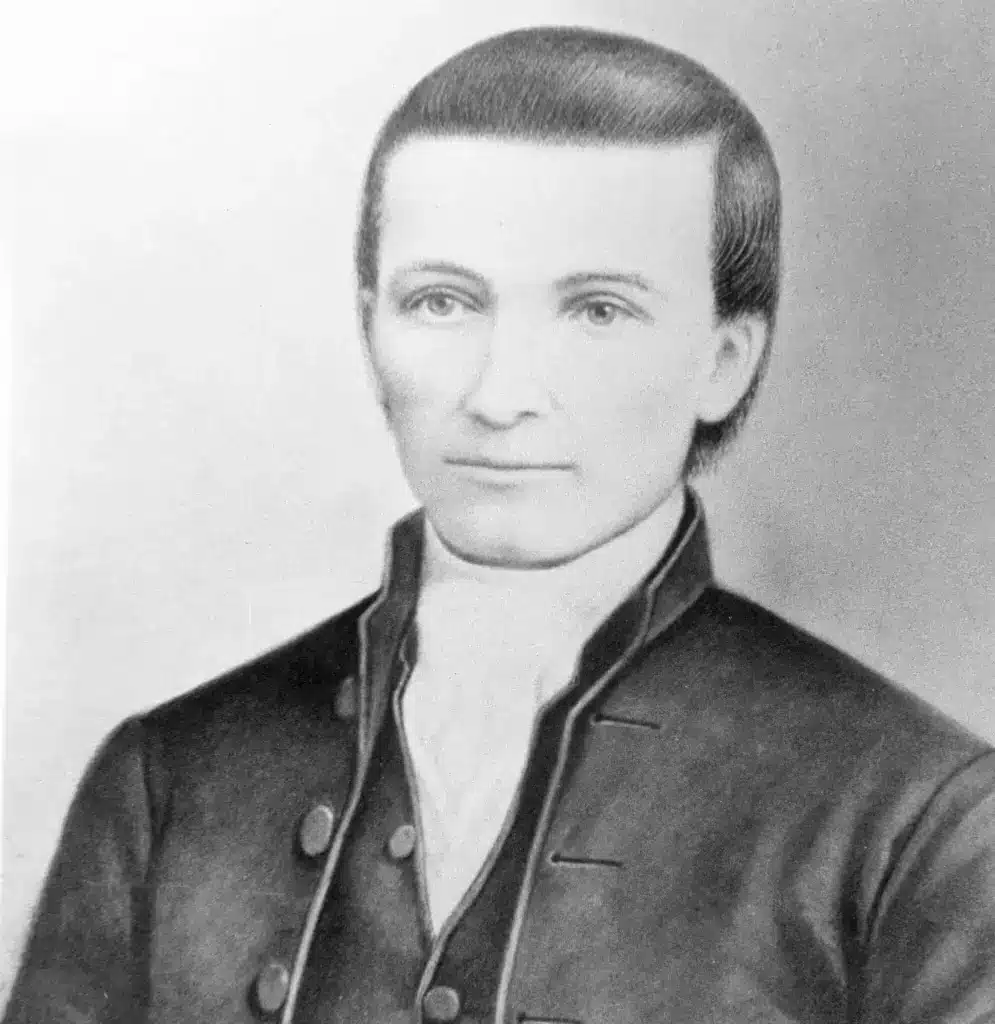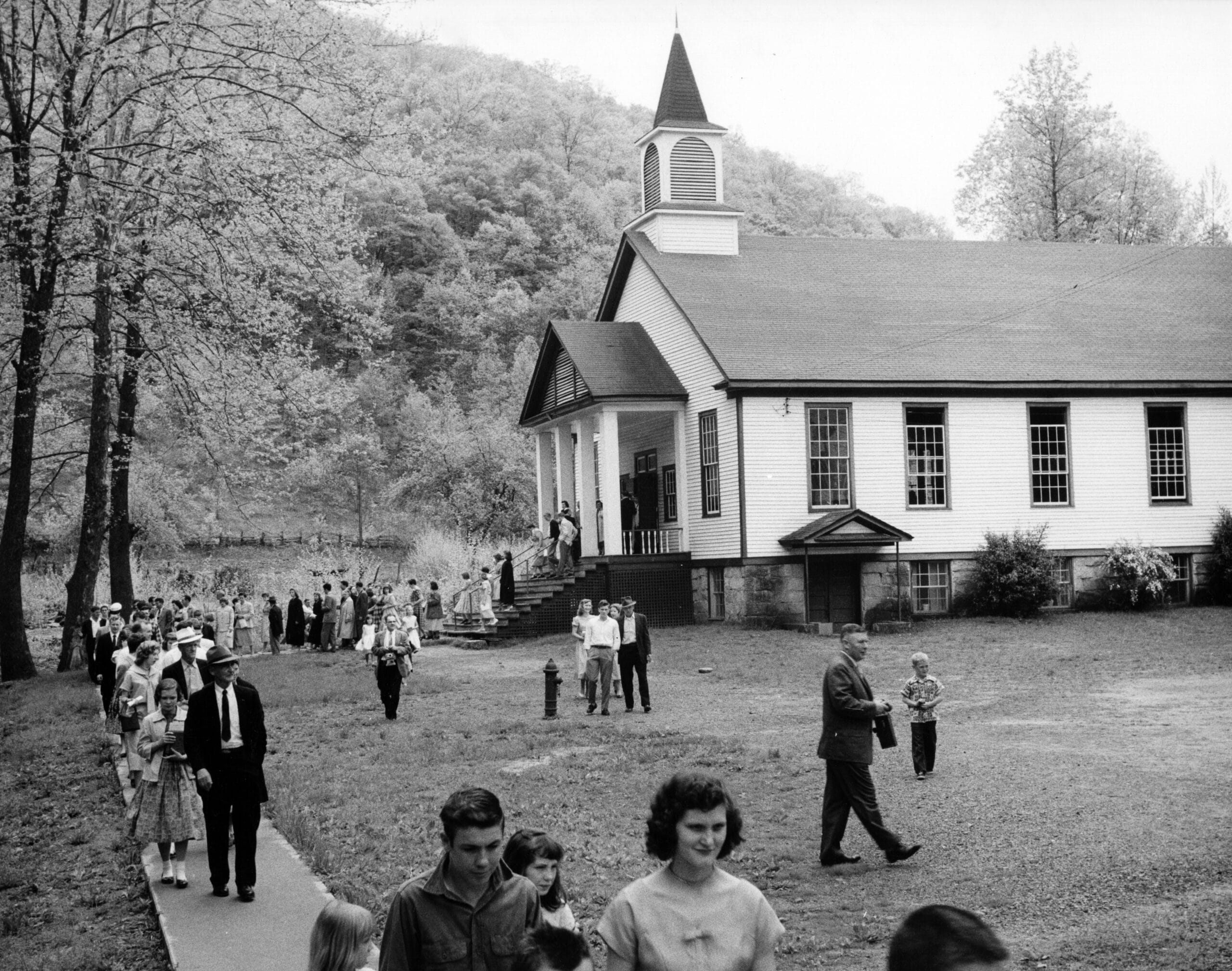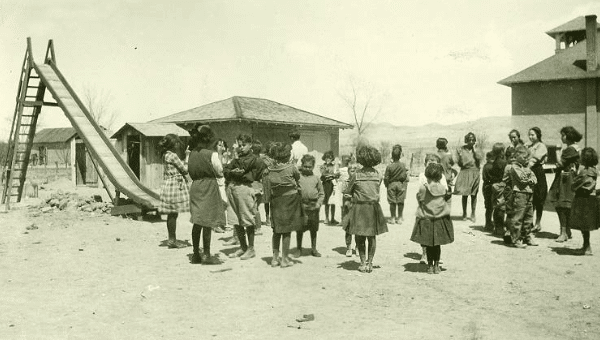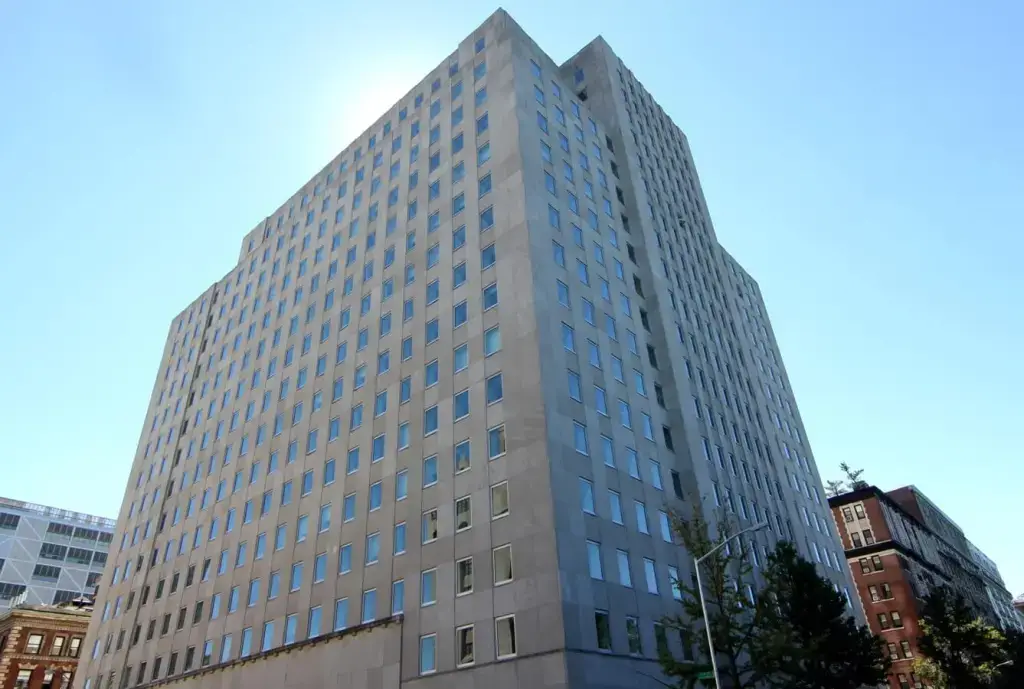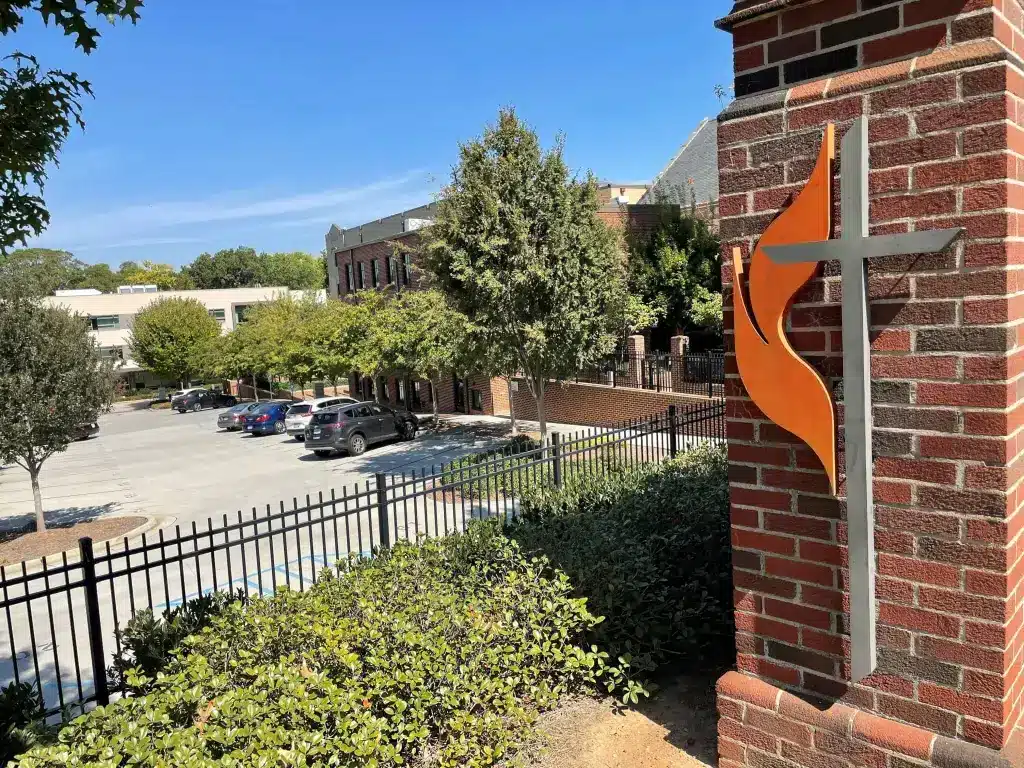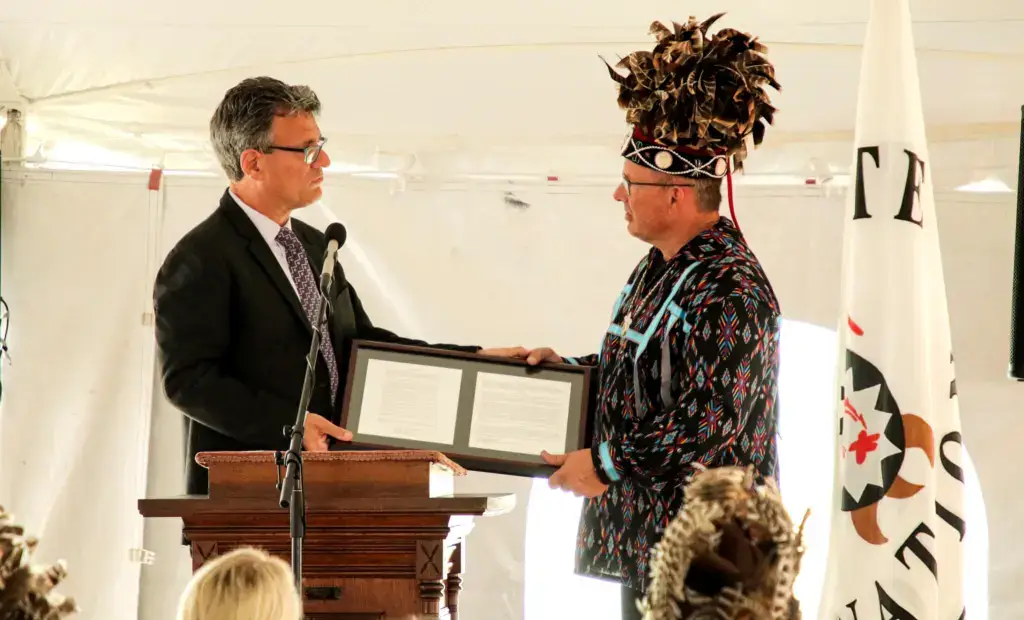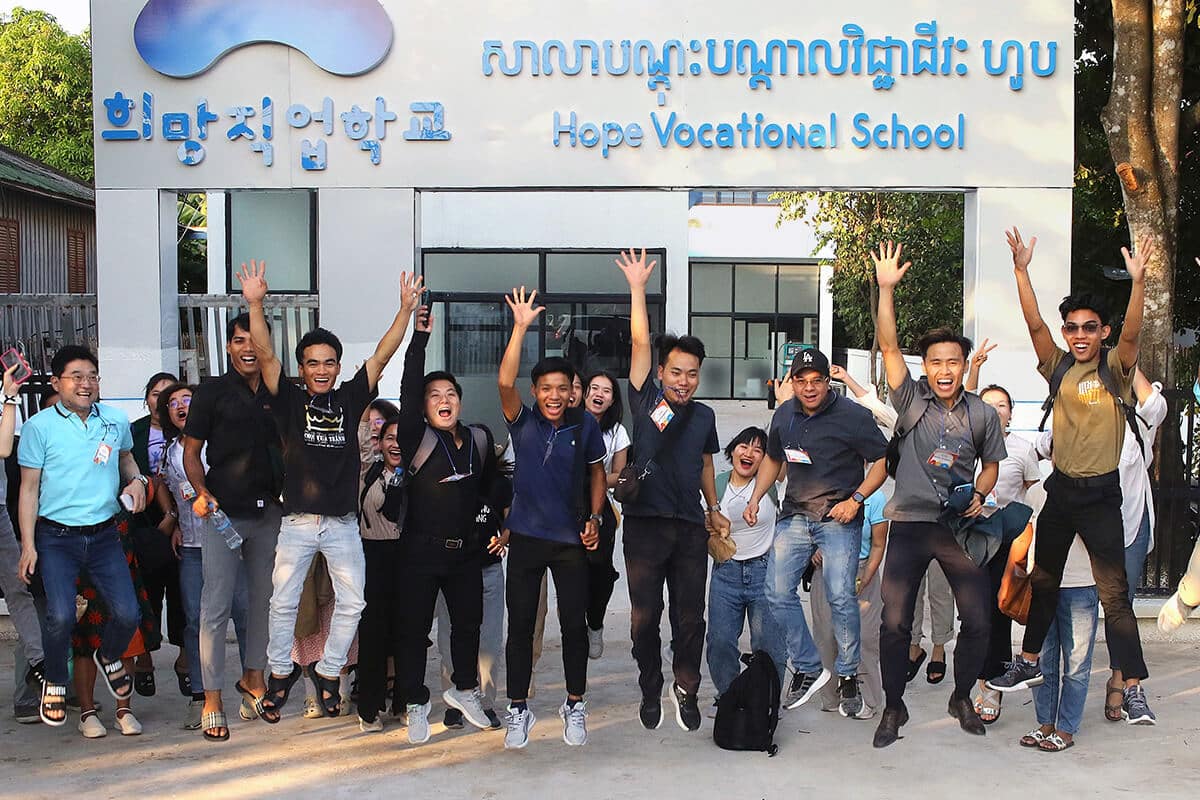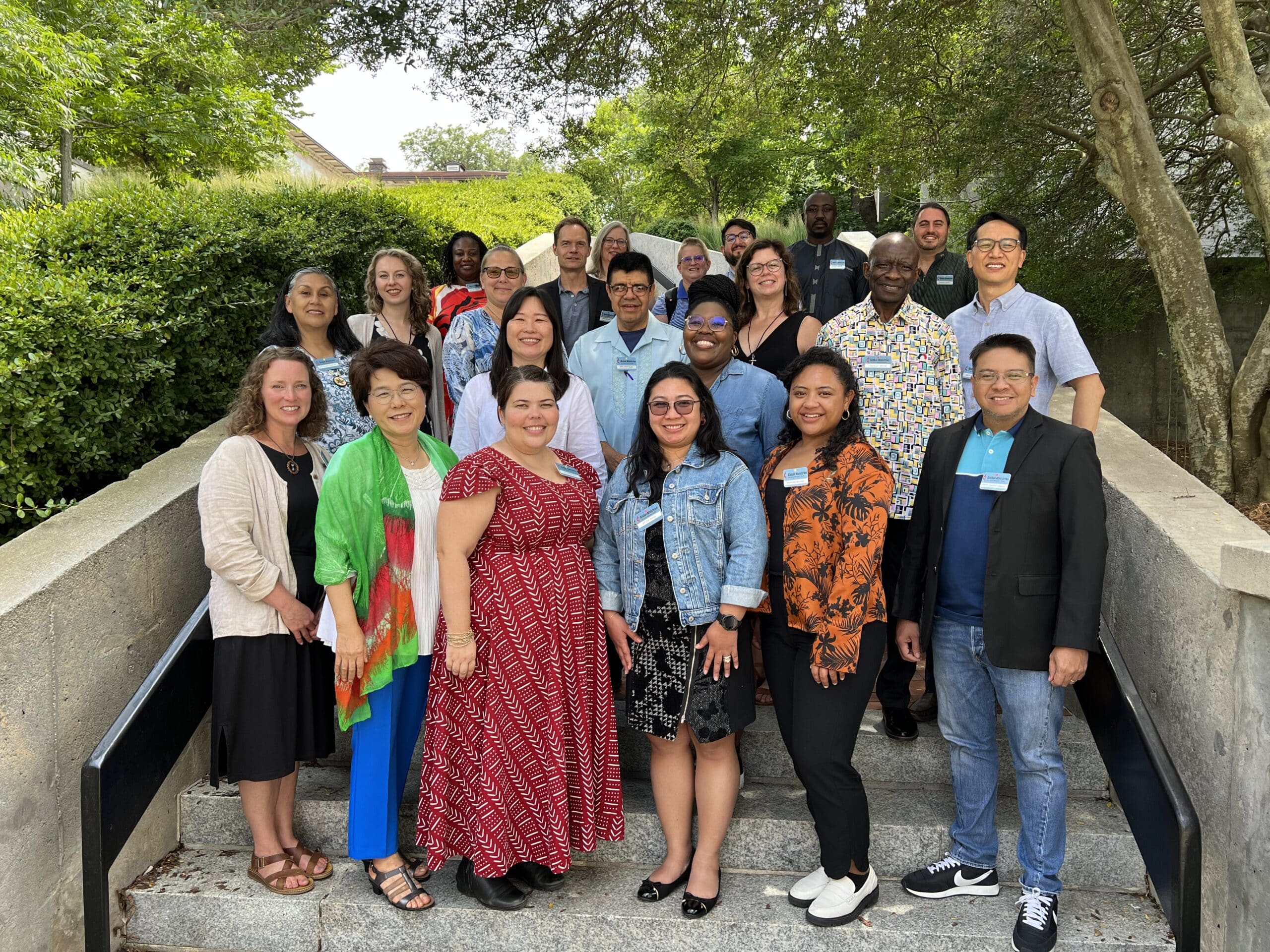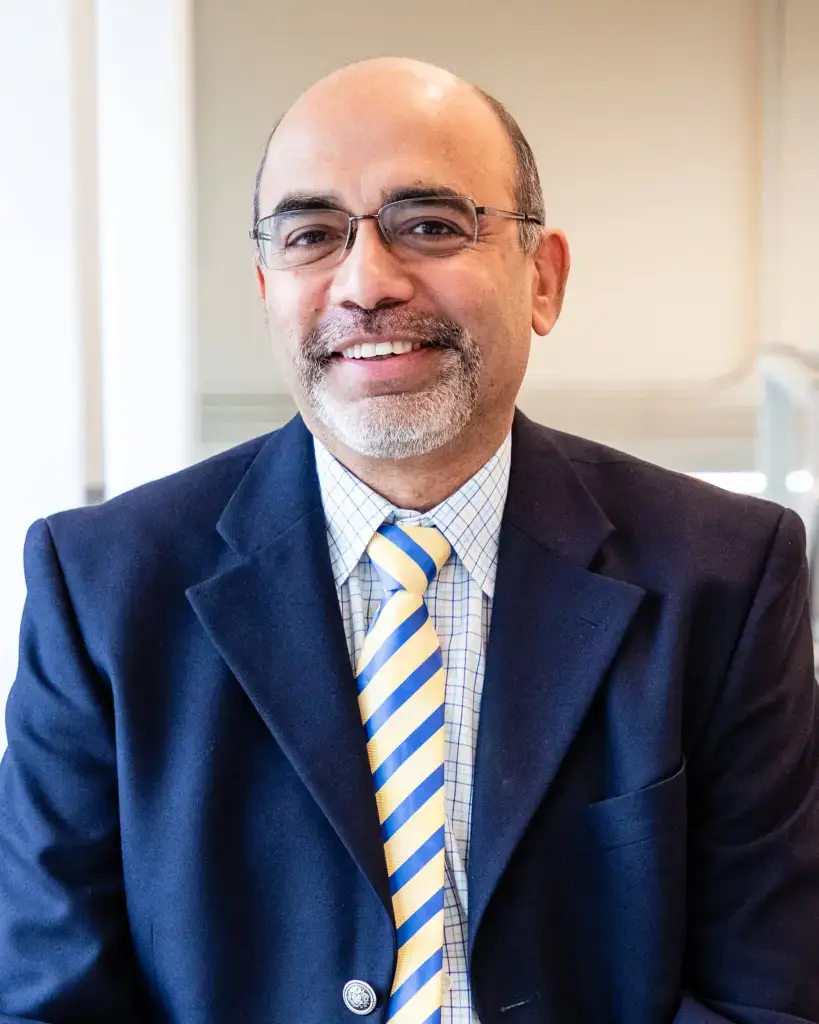John Wesley, Francis Asbury and Thomas Coke. Photo: General Commission on Archives and History
The Methodist Episcopal Church: 1784-1939
The Methodist Episcopal Church (MEC) was the earliest of these predecessor denominations, founded in the United States in 1784 while Wesley was still living. At the founding conference, Francis Asbury and Thomas Coke were installed as superintendents. Both were missionaries from England, sent by John Wesley.
Sketch of John Stewart by Rev. B. C. Love in 1889; John Stewart Memorial; Wyandotte Mission Church in Upper Sandusky, Ohio. PHOTOS: CHRISTIE R. HOUSE; Nathan Bangs. Photo: General Commission on Archives and History
First Denominational Missionary Society: 1819
The first Methodist missionary society of the MEC, in the line that developed into the current Global Ministries, was founded in 1819. It was organized by a self-appointed group of preachers led by Nathan Bangs, a pastor of the New York Conference.
The Missionary Society was encouraged by the work of John Stewart among the Wyandotte people of Upper Sandusky, Ohio, started in 1816. Stewart, of mixed race, including African ancestry, listened for the voice of God and was compelled to preach among the Wyandotte. He was eventually licensed as a Methodist preacher and continued to live and work with the Wyandotte until his death in 1823.
The Mulberry Street building, an early Missionary Society building in partnership with the Methodist Book Room. Photo: General Commission on Archives and History
First Home – New York City: 1820
Though primarily concerned with domestic mission, the Missionary Society held the door open to send future missionaries to other countries as well. It made its home in New York City and was tied to the Methodist Book Concern, the Methodist publishing house of its time, to stabilize its administrative and financial structures. This association — mission and publishing — continued for more than a century.
Early missionaries Melville Cox and Ann Wilkins. Photo: General Commission on Archives and History
First Overseas Missionaries: 1830s
In 1833, the Missionary Society sent out its first overseas missionary, the Rev. Melville B. Cox, a preacher from Maine, to serve in Liberia. He arrived in March and died of a fever, likely malaria, by July. Yet, in that short time, he organized the Methodist Episcopal Church in Liberia.
In 1837, the mission board sent its first woman missionary, Ann Wilkins, as a teacher to Liberia. She founded the first overseas school of the Missionary Society, Millsburg Female Academy, and served in Liberia for 19 years.
Woman’s Foreign Missionary Society, 1882-1883, Boston. Photo: General Commission on Archives and History
Woman’s Foreign Missionary Society: 1869
In 1869, the Woman’s Foreign Missionary Society of the Methodist Episcopal Church was formed in Boston, Massachusetts. By the end of that year, the society sent Isabella Thoburn, a teacher, and Clara Swain, a doctor, to India as the society’s first missionaries. This work, and that of the Woman’s Home Missionary Society, formed in 1880, became part of Global Ministries’ history with mergers that brought the mission work of the women’s societies and the mission work of the board together under one organization.
After the 1968 merger, the women’s organization was known as the Women’s Division of Global Ministries. In 2012, the Women’s Division and Global Ministries separated and United Methodist Women became an independent organization with its headquarters in New York City. In 2022, the national office changed its name to United Women in Faith, and many United Methodist Women organizations at the conference, district and local church levels did the same, but some are still known as United Methodist Women, all part of the same organization.
Methodist Protestant school in China. Photo: General Commission on Archives and History
The Methodist Protestant Church: 1830-1939
The Methodist Protestant Church (MPC) parted ways with the MEC in 1830, mainly over the issue of inclusion of laypeople in denominational decision-making. It was the first of the Methodist denominations to ordain women as pastors. The MPC set up its foreign mission board at its first General Conference, sending an overseas missionary to Liberia in 1837. But its mission work mostly concentrated on U.S. programming until 1880, when mission work began in Japan in cooperation with other Protestant denominations.
The Lambuth Family. Photo: Courtesy of Kwansei Gakuin
Methodist Episcopal Church, South: 1844-1939
In 1845, the churches of the southern states broke off from the MEC over the issue of slavery and formed the Methodist Episcopal Church, South. They recreated similar structures as the MEC, sending out missionaries and founding churches, schools, publishing operations and hospitals.
The Lambuth family (pictured) was one of the most famous missionary families in the Methodist Episcopal Church, South, and indeed, in all of Methodism. The family spanned from 4 generations in service, across the U.S., China, Japan and Africa. The older couple in the center is James and Mary, who originally set off to China from Mississippi. Behind Mary is Walter, and to the left is his wife, Daisy. The man in uniform next to Walter is his younger brother, Robert, whose wife is on the right. The couple standing on the left is Walter’s sister, Nora and her husband, Dr. William Park.
Methodist Board of Missions headquarters and the Methodist Book Concern, 1888 to 1952, Fifth Avenue and 20th Street, New York City. Photo: General Commission on Archives and History
The Methodist Church: 1939-1968
The MEC, MECS and Methodist Protestant Church reunited in 1939 as The Methodist Church. Unification required the consolidation of five mission boards and the work of the three women’s agencies into one Board of Missions of the Methodist Church.
In 1940, the Methodist Committee on Overseas Relief (MCOR) was created by General Conference to begin relief operations for the many refugee and internally displaced populations made destitute by World War II. It was a separate agency under the mission board in New York City.
Martin Boehm and William Otterbein, United Brethren in Christ. Photo: General Commission on Archives and History
The Church of the United Brethren in Christ: 1800-1946
The Church of the United Brethren was founded among primarily German-speaking immigrants who settled in the United States in Pennsylvania, Virginia, Maryland and Ohio. The founders of this church, Martin Boehm and William Otterbein, held their first revival service in Lancaster, Pennsylvania, in 1767. The denomination came together officially in 1800 at its first General Conference. It launched its first missionary society in 1841, which started work in Sierra Leone and elsewhere.
Jacob Albright. Photo: General Commission on Archives and History
The Evangelical Association and United Evangelical Church: 1803-1922
The Evangelical Association of North America was founded by Jacob Albright, a German-speaking native of Pennsylvania, in the 1790s. Albright was influenced by John Wesley and the Methodist movement. The Evangelical Association launched mission work in Nigeria, Europe and Asia. In 1894, a third of the membership of the Evangelical Association withdrew and formed the United Evangelical Church.
Redbird Mission, Beverly, Kentucky. Photo: General Commission on Archives and History
The Evangelical Church: 1922-1946
The Evangelical Church was formed in 1922 by the reunification and merger of the Evangelical Association of North America and the United Evangelical Church.
McCurdy School, 1922, Espanola, New Mexico. Photo: General Commission on Archives and History
Evangelical United Brethren Church: 1946-1968
In 1946, the Evangelical Church merged with the Church of the United Brethren in Christ to form the Evangelical United Brethren Church (EUB). The EUB theology of mission included evangelism but also cooperation with other churches and government bodies to fulfill its mission objectives. In contrast to the Methodist Church, which developed overseas missions and then exerted authority over them by assigning bishops, the EUB mission established faith communities and then surrendered denominational authority, enabling indigenous churches to form autonomous churches connected to the denomination.
475 Riverside Dr., New York, NY. Global Ministries headquarters 1959-2016. Photo: Christopher Tricomi
The United Methodist Church: 1968-present day
The United Methodist Church, formed in 1968 by merger of The Methodist Church and the Evangelical United Brethren Church, created the General Board of Global Ministries as the denomination’s mission organization.
MCOR became the United Methodist Committee on Relief (UMCOR) in 1968, coming under the umbrella of Global Ministries as an agency that concentrated on refugee relief; disaster relief, response and recovery; and development.
Wyandotte land transfer from Thomas Kemper (left), former general secretary of Global Ministries (2010-2020), to Chief Billie Friend of the Wyandotte Nation of Oklahoma. Photo: Anythony Trueheart
Bicentennial Celebration: 2019
Global Ministries marked 200 years of Methodist mission in 2019. The bicentennial recognized the accomplishments and changes over the past 200 years while celebrating the present and future of Methodist mission, including how mission unifies all Methodists for God’s redemptive work in the world. As part of the bicentennial observance, Global Ministries held a world conference of mission leaders and scholars in Atlanta called “Answering the Call: Hearing God’s Voice in Methodist Mission Past, Present and Future.” It also marked the occasion with a new book, "Methodist Mission at 200: Serving Faithfully Amid the Tensions."
Participants and facilitators of 2024 ASCEND, a global leadership development training for Methodist young adults in Asia, jump for a photo at Hope Vocational School in Phnom Penh, Cambodia on Nov. 4. Photo: the Rev. Thomas E. Kim, UM News
Changes in Mission Theology and Practice
The United Methodist mission agency has undergone many changes throughout its 200+-year history. These changes have included structural and administrative adjustments as well as changes to funding support, logistics in humanitarian work and missionary placements, and theological changes as evaluation practices became more deliberate and direct.
Although the concept of mission was originally assumed as the U.S. church taking Christ to other lands, this concept also led to complicity with colonial powers seeking to exploit people of other nations for their raw resources and human labor. Global Ministries acknowledges this sin of colonialism, racism and arrogance as part of its history. But we also acknowledge that Methodists in other lands, inheritors of Global Ministries’ mission outreach, became leaders who were pivotal in helping Global Ministries to understand these sins and how to work toward equality and mutuality so that all Methodists are working together for God’s mission.
Roland Fernandes, General Secretary of Global Ministries
Roland Fernandes, General Secretary: 2020-
Roland Fernandes became the general secretary (chief executive) of Global Ministries and the United Methodist Committee on Relief (UMCOR) on September 1, 2020, having filled key leadership roles in the organizations since 1995. His responsibilities increased when he was also elected general secretary of Higher Education and Ministry, beginning July 1, 2024.
“The General Board of Global Ministries of The United Methodist Church is in a new mission age,” he said, “challenged to faithfully respond to waves of tensions — some new, some longstanding. We seek to comprehend and apply our most Christ-filled and creative attention to these challenges. We dare to do this because God, through Christ, has blessed us with the fruits of the Spirit identified by Paul in Galatians. We dare to faithfully engage in God’s mission because God, in grace, makes our work possible. Our work is to exemplify and share the love of God and neighbor. This was the mission message of Jesus, the first disciples, St. Paul and John Wesley.”
